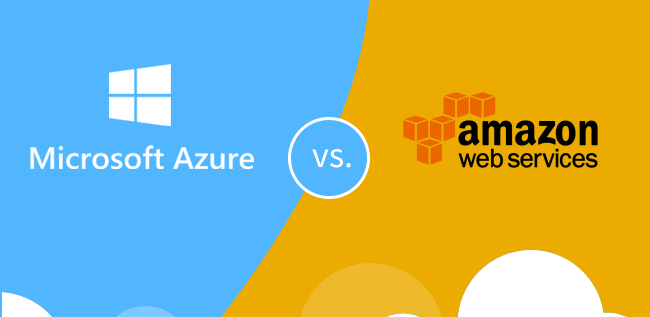
Azure or AWS or Azure & AWS? What’s your cloud strategy for Storage?
This is our second blog, in our latest blog series helping you understand all about cloud, especially when you are in doubt whether to go Azure or AWS or both.
To read our first blog talking about Cloud strategy in general and Compute in particular, click here…
Moving on, in this blog let’s find what Azure or AWS offer when it comes to Storage Capabilities for your Cloud Infrastructure.
Globally CIOs are increasingly looking to cease running their own data centers and move to cloud which is evident when we read the projection made by a leading researcher, MarketsandMarkets. They had reported that the global cloud storage business sector to grow from $18.87 billion in 2015 to $65.41 billion by 2020, at a compound annual growth rate (CAGR) of 28.2 percent during the forecast period.
Reinstating the fact, 451 Research’s Voice of the Enterprise survey last year stated that Public cloud storage spending will double by next year (2017). “IT managers are recognizing the need for storage transformation to meet the realities of the new digital economy, especially in terms of improved efficiency and agility in the face of relentless data growth,” said Simon Robinson, research vice president at 451 and research director of the new Voice of the Enterprise: Storage service. “It’s clear from our Q4 study that emerging options, especially public cloud storage and all-flash array technologies, will be increasingly important components in this transformation” he added further.
As we see, many companies are in for Cloud Storage, undoubtedly. But the big question – Whom to choose from a gamut of leading public cloud players including big players like AZURE, AWS; Should it be AZURE alone for your cloud storage or AWS or a combination of both still prevails.
This needs a thorough understanding. To help you decide for good, we have decided to re-produce a guide, published by Microsoft that briefs Azure‘s capabilities in comparison to AWS when it comes to Cloud Strategy. And we will see the Storage part in this blog, but before, that a little backgrounder on Cloud Storage.
When we talk about cloud storage device mechanisms, we include all logical units of data storage covering from files, blocks, and datasets to objects and their relative storage interfaces. These instances of virtual storage devices are designed specifically for cloud-based provisioning and can be scaled as per need. It is to be noted that different cloud service consumers utilize different technologies to interface with virtualized cloud storage devices.
| Service | Description | AWS | Azure |
|---|---|---|---|
| Object storage | Object storage service for use cases including cloud apps, content distribution, backup, archiving, disaster recovery, and big data analytics. | Simple Storage Services (S3) | Storage—Block Blob (for content logs, files) (Standard—Hot) |
| Virtual Server disk infrastructure | SSD storage optimized for I/O intensive read/write operations. | Elastic Block Store (EBS) | Disk Storage—Page Blobs (for VHDs or other random-write type data) Disk Storage—Premium Storage |
| Shared file storage | A simple interface to create and configure file systems quickly as well as share common files. | Elastic File System | File Storage (file share between VMs) |
| Archiving—cool storage | A lower cost tier for storing data that is infrequently accessed and long-lived. | S3 IA Glacier | Storage—Hot, Cool & Archive Tier |
| Backup | Backup and archival solutions that allow files and folders to be backed-up and recovered from the cloud, and provide off-site protection against data loss. | Backup and Recovery | Backup |
| Hybrid storage | Integrates on-premises IT environments with cloud storage. Automates data management and storage, plus supports disaster recovery. | Storage Gateway | StorSimple |
| Bulk data transfer | A data transport solution that uses secure disks and appliances to transfer substantial amounts of data. Petabyte- to Exabyte-scale data transport solution. | AWS Import/Export Disk AWS Import/Export Snowball AWS Snowball Edge AWS Snowmobile | Import/Export Data Box |
| Disaster recovery | Automates protection and replication of virtual machines with health monitoring, recovery plans, and recovery plan testing. | Site Recovery |
For a more detailed understanding download the document here
Share this:

CloudIQ is a leading Cloud Consulting and Solutions firm that helps businesses solve today’s problems and plan the enterprise of tomorrow by integrating intelligent cloud solutions. We help you leverage the technologies that make your people more productive, your infrastructure more intelligent, and your business more profitable.
LATEST THINKING
INDIA
Chennai One IT SEZ,
Module No:5-C, Phase ll, 2nd Floor, North Block, Pallavaram-Thoraipakkam 200 ft road, Thoraipakkam, Chennai – 600097
© 2023 CloudIQ Technologies. All rights reserved.

